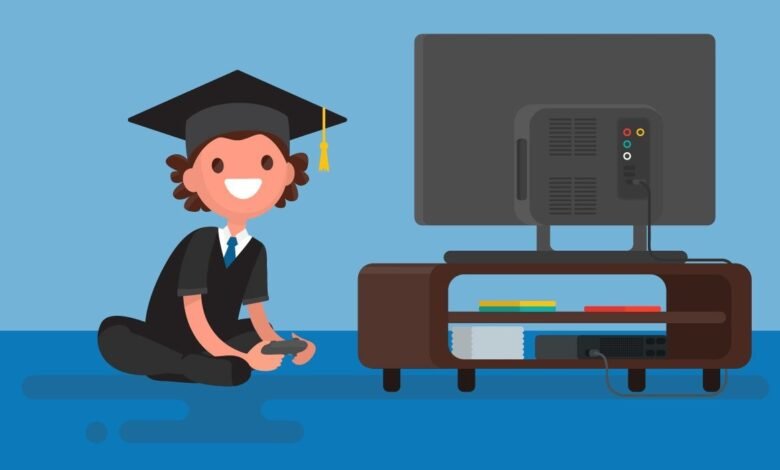Gaming and Learning: How Video Games Can Boost Cognitive Skills
Gaming and Learning can boost cognitive skills, enhance problem-solving abilities, and promote learning through engaging gaming experiences.

The intersection of gaming and learning has sparked considerable interest in recent years, revealing how video games can boost cognitive skills. Far from being mere entertainment, video games are now recognized as tools that foster problem-solving, memory, attention, and decision-making. With advanced graphics, compelling storylines, and intricate challenges, games are engaging platforms that stimulate mental growth.
From action-packed shooters to strategic puzzles, video games cater to a wide range of cognitive abilities. Whether they involve navigating complex virtual worlds or solving intricate mysteries, these games provide opportunities to enhance learning in an interactive, rewarding way. This article explores the science behind how video games can boost cognitive skills and why they are becoming an essential part of modern education.
Read More: Gaming and Learning
Understanding the Cognitive Benefits of Gaming and Learning
Video games can boost cognitive skills by engaging players in tasks that require focus, memory, and strategic thinking.
When playing video games, players must process visual and auditory information, react swiftly, and make quick decisions. These activities stimulate the brain, improving hand-eye coordination, attention span, and spatial awareness. Research shows that video gamers often outperform non-gamers in cognitive flexibility, the ability to switch between tasks seamlessly.
Problem-Solving and Critical Thinking in Gaming and Learning
Gaming encourages players to develop problem-solving and critical-thinking skills, essential for real-world scenarios.
Many video games require players to solve puzzles, overcome obstacles, or strategize to achieve objectives. For example, games like The Legend of Zelda challenge players to think creatively and apply logic, improving their ability to analyze situations and devise solutions.
Enhancing Memory Through Video Games
Video games can boost cognitive skills like memory by requiring players to recall information and apply it effectively.
Memory-intensive games such as role-playing games (RPGs) demand players to remember quests, maps, and character abilities. This repeated practice strengthens both short-term and long-term memory, enhancing the brain’s ability to retain and recall information.
Attention and Focus in Gaming and Learning
Fast-paced games improve attention and focus, sharpening players’ ability to concentrate on tasks for extended periods.
Action games like Call of Duty or Fortnite demand rapid attention shifts, enhancing players’ ability to focus on multiple stimuli. These skills transfer to daily life, aiding in multitasking and maintaining attention in high-pressure environments.
The Role of Strategy Games in Cognitive Development
Strategy games develop planning, resource management, and decision-making skills, critical aspects of cognitive growth.
Games like Civilization and StarCraft require players to anticipate outcomes, allocate resources, and execute strategies. These tasks mirror real-life decision-making processes, reinforcing strategic thinking.
Multiplayer Games and Social Cognitive Skills
Multiplayer games improve social and collaborative skills, fostering teamwork and communication.
Games like Among Us and World of Warcraft encourage players to collaborate, negotiate, and solve problems as a team. These experiences enhance emotional intelligence, empathy, and interpersonal communication.
The Role of Educational Games in Learning
Educational games are designed to teach specific skills or knowledge while engaging players in fun activities.
Games like Brain Age or Minecraft: Education Edition incorporate educational content, helping players learn math, science, and even coding. These games provide a hands-on, interactive learning experience.
Improving Visual-Spatial Skills Through Gaming
Video games can boost cognitive skills like visual-spatial awareness by training players to interpret and navigate 3D environments.
Games like Portal and Tetris challenge players to visualize spatial relationships and manipulate objects mentally, enhancing their spatial reasoning skills.
Gaming and Language Learning
Certain video games help players learn new languages by integrating language skills into gameplay.
Games like Duolingo and narrative-driven RPGs provide language-rich environments where players practice vocabulary, grammar, and conversation skills in context.
Stress Reduction and Mental Health Benefits
Gaming can be a stress-relieving activity that promotes mental well-being and cognitive balance.
Relaxing games like Stardew Valley or Animal Crossing provide soothing environments that reduce anxiety and improve mood. Stress-free gaming enhances overall cognitive function by fostering emotional stability.
The Science of Brain Training Games
Brain-training games specifically target cognitive skills such as memory, attention, and logic.
Games like Lumosity and Peak offer tailored exercises designed to stimulate brain function, helping players maintain mental sharpness.
How Gaming Supports Multitasking Abilities
Video games improve multitasking skills by requiring players to manage multiple objectives simultaneously.
In games like Overwatch, players juggle offense, defense, and teamwork in real time. These experiences train the brain to handle complex tasks efficiently.
The Role of Virtual Reality (VR) in Cognitive Development
VR gaming offers immersive experiences that enhance cognitive and motor skills.
VR games like Beat Saber combine physical activity with problem-solving, improving coordination, reaction times, and mental agility in an engaging format.
Building Emotional Resilience Through Gaming
Overcoming challenges in video games fosters emotional resilience and perseverance.
Games like Dark Souls teach players to learn from failures and adapt strategies, building mental toughness and determination.
How Video Games Help with Attention Deficit Disorders
Studies suggest that video games can help individuals with ADHD improve focus and self-regulation.
Specialized games, such as EndeavorRx, are designed to enhance attention in children with ADHD, offering therapeutic benefits through gameplay.
The Benefits of Role-Playing Games (RPGs)
RPGs stimulate imagination and storytelling skills, promoting creativity and narrative comprehension.
Games like The Witcher or Final Fantasy immerse players in rich stories, enhancing their ability to understand complex narratives and empathize with characters.
The Connection Between Gaming and Learning Creativity
Gaming fosters creativity by encouraging players to think outside the box and experiment with innovative solutions.
Sandbox games like Minecraft allow players to build and create freely, unlocking creative potential and enhancing problem-solving.
Gaming as a Tool for Skill Transfer
Skills developed in gaming often transfer to real-world applications, enhancing professional and personal performance.
For instance, teamwork in gaming translates to better collaboration at work, while strategic thinking aids in career advancement.
Responsible Gaming for Cognitive Benefits
To maximize benefits, gaming should be balanced with other activities and approached responsibly.
Limiting screen time, choosing appropriate games, and integrating breaks ensures gaming remains a productive and enjoyable activity.
The Future of Gaming and Cognitive Development
The evolution of gaming technology continues to expand its potential for enhancing cognitive skills.
With advancements in AI and VR, games will offer even more personalized and immersive learning experiences, revolutionizing education and skill development.
Read More: Gaming and Learning
Conclusion
Gaming is no longer just a pastime; it’s a dynamic tool that enhances learning and cognitive development. From improving memory and focus to fostering problem-solving and creativity, video games can boost cognitive skills in ways traditional methods often cannot. With the right balance and game selection, players of all ages can reap the cognitive rewards gaming has to offer.
As technology advances, the potential for gaming to enhance education and personal growth will only increase. By embracing gaming as a learning tool, we can unlock new avenues for mental development and success in today’s fast-paced world.
FAQs
1. How do video games boost cognitive skills?
Video games enhance memory, focus, problem-solving, and multitasking through engaging, interactive gameplay.
2. Can gaming help improve learning in children?
Yes, educational games and puzzles can make learning fun while teaching important skills like math, language, and logic.
3. Are action games good for brain development?
Action games improve hand-eye coordination, attention, and decision-making, making them beneficial for brain development.
4. How can gaming support emotional health?
Games reduce stress, boost mood, and teach perseverance, contributing to better emotional well-being.
5. What are the best types of games for cognitive growth?
Strategy, puzzle, role-playing, and educational games are particularly effective for cognitive skill enhancement.







